If you have been gardening for a while, you would have encountered humus soil. It is a dark brown, absorbent mass usually made from the fully decayed remains of plants, insects, small animals, and other organic materials. You will see it if you dig down a few inches in a forest, and there might be bags of it for sale, especially in your local gardening store.
You might be thinking – is that compost? Almost, but not entirely. Compost is primarily what you get if you pile up leaf waste and kitchen scraps in your backyard and let it decompose for six months or more. Compost, or black gold as gardeners call it, is an excellent addition to your garden. It primarily retains water, adds nutrients, and improves your soil quality.

Humus soil takes it a step further. If you leave your compost for several years – say ten years, the ground becomes more and more fertile. The reason being microorganisms, fungi, earthworms, and other tiny creatures living in the soil would continue to work on it. It a part of the soil formation process. They break it down more and more until they are reduced to the smallest molecular particles. Finally, when it becomes humus. You should read this article about humus and how it benefits your garden.
What is Humus and How is it Made?
The best place you can find humus is in the wild forested areas that have been undisturbed for decades.
You may ask, why should this matter to you, the gardener? If compost is black gold, you should understand that humus is considered black platinum. Adding it to your soil can improve the texture, absorbency, and nutrients. It will also help regulate the pH of your soil.

You should know the chemistry of humus. Organic matter is a general phrase that primarily includes plants, animals, and fungi. Any living thing that is carbon-based.
When a carbon-based organism dies, the process begins to break down into its constituent parts. Moreover, that process is assisted along by tiny organisms that may include bacteria, microbes, algae, and more. This complete process is called aerobic decomposition, as it happens in the presence of oxygen.
Even in your garden, plants absorb the carbon-based material once the organisms break down to a certain level. Plants absorb these materials into their roots, where it serves as food. Nutrients like nitrogen, potassium, and phosphorus are vital to plants. All these minerals are produced and absorbed by plants in this way.
Eventually, a new process starts known as anaerobic decomposition. It is called humification – where plants take what the plants can’t immediately use and break it down further. The result is mainly carbon – it may also include humic acid, fulvic acid, and humin. Humus is a stable substance that can not be changed or reduced further.
What Does Humus Do In the Garden?
So what is so particular about humus soil? Is it better than compost or any other additive you feed your soil? Humus generally has several tasks in the garden – each of which improves your soil’s fertility and structure differently.
Humus is considered the backbone of all crop production and plays a significant role in their growth. Most soils used for agriculture contain approx two to ten percent of organic matter.
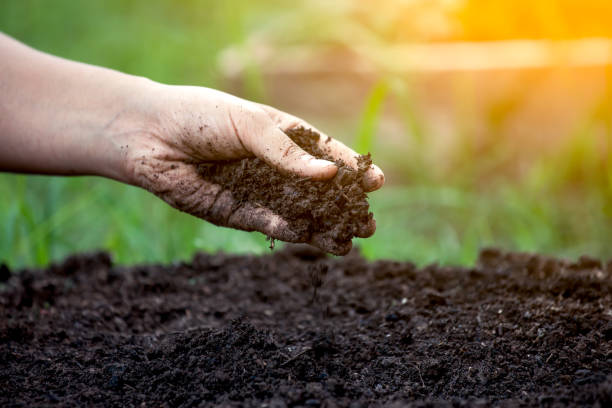
Humus soil is still significant even in such a small percentage. It means the soil is living, and it has a unique ecosystem. It means it is healthy soil. Healthy soil contains organisms that can convert minerals, decaying matter, and dead matter into plant nutrients. The decomposition rate or biological activity depends on the supply and type of organic matter.
It is important to note that soil fertility results from chemical activities. In simple terms, it is the exchange of nutrients between water, soil, and decomposed organic matter. As a result, it not only defines the role of humus in the soil, but it is also beneficial. Here we discuss some of the extraordinary benefits of humus that can improve soil fertility.
Nutrient supply
Organic matter contains nutrients that the soil organisms break down to release. Studies indicate that two to three pounds of sulfur and 4.5 to 6.6 pounds of phosphorus oxide are released by organic matter. Even 20 to 30 pounds of macro-element nitrogen are released by one percent of organic matter present in the soil.
These elements often release decomposed organic matter, which helps in the vegetative growth of a plant. It is important to note that amino acid production, support, and anthocyanin formation are some of the functions. Other important functions are chlorophyll production. All these are essential functions that produce a healthy plant.
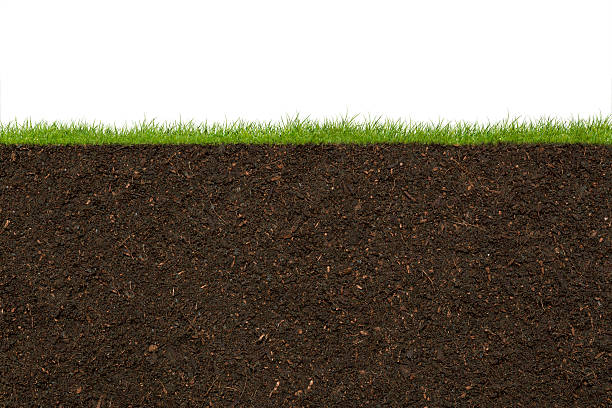
Humus actively supports the soil microorganisms such as protozoa, fungi, bacteria, and algae, among other species. It also helps earthworms and insects that may create a living component. Which we know as the soil ecosystem. All these aids in the breaking down of the process of nutrients.
The organisms break down the organic matter present in the soil. They can do this by ingesting and mixing them with the soil minerals. Primary consumers later consume these nutrients in the plants and up the food chain of human beings.
Water holding capacity
For the soil to be healthy, it should have enough moisture. The soil should also have a good water retention capacity based on the requirement of different crops. More organic matter in the soil will increase the soil’s ability to retain water.
In simple terms, it will act like a sponge, and it can hold water. It can hold water approx 90 percent of its weight. Therefore, the water being held by the organic matter – is readily available to the crops when needed.
Improves soil structure
Soil structure is nothing but the aggregation of soil particles in different patterns. Note that a good soil structure is an indicator of healthy soil. One of the most significant factors that generally affect soil structure is the presence or absence of humus or organic matter.

A soil that has a higher percentage of humus will aggregate easily and maintain a good soil structure. In contrast, ground with a low rate of decomposed organic matter has a poor system and cannot support maximum crop production.
Cause soil aggregation
Soil aggregation is formed by clumping together soil particles. As you know, organic matter has the capability of causing soil particles to clump together. It is possible as the adhesive properties help to form soil aggregates. Soil aggregation improves soil structure which is a property of healthy soil.
Prevention of erosion
The universal loss of soil equation data often indicates that increased decomposed soil organic matter benefits the plant. It can help reduce erosion. There is a reduction in erosion by approx 20 to 33 percent.
Humus increases water infiltration, which helps prevent surface runoff. In addition, Moreover, soil with a high amount of humus has a stable soil aggregate, making it complicated. Therefore, agents like water and wind will erode it to a a lesser extent.
Prevents leaching
Nutrients and minerals are the prime ingredients of a healthy soil which plants require. But due to adverse weather conditions, among other factors – these minerals and nutrients can be leached. They are generally leached to deeper depths where the crop roots might not be able to reach. Hence these nutrients and minerals are unavailable in the soil for the plants to use. You can reduce the leaching process if if the soil has decomposed organic matter.
The humification process often involves action by microbes which often secrete a sticky and gum-like mucilage. This mucilage helps form the crumby structure or tilth of the soil. The mucilage adheres to the soil particles together. Thus improving the aeration of different soils. At the same time, it increases chelation – a process where excess nutrients are typically bound to the decomposed organic particles of the humus soil. In turn, it prevents them from being leached.
Have a buffering effect
As you know, different crops grow in soils having different pH levels. In this regard, healthy soil can provide the optimum pH for specific plant growth. It is only possible when there is adequate humus available in the soil.
It is also important to know that soil microbes thrive best in optimal soil pH. As we have seen, humus has a buffering effect on the soil. Therefore it prevents too much acidity or too much basicity.
Several studies have established that soils with a high percentage of humus can moderate the pH level. It will allow plants to grow under optimum conditions. The reason is that the pH changes often lead to low crop yields.
Increases the oxidation of complex organic substances
As you know, the decomposition process of organic matter may directly impact the oxidation process of complex organic compounds such as lignin-like humus. Plants break break down these compounds simple sugars, aliphatic, amino sugars, and a type of acid referred to as phenolic.
Plants further break down these compounds into biomass or microbial humus. Which they further transform into humic assemblages – after further oxidation. These humic assemblages are usually the humic acid and the fulvic acids. These are crucial in binding to the metal hydroxides and minerals in the clay.
Humus Soil Important for Garden
You would also agree that the foundation of any food system is the availability of healthy soil. Healthy soil contains decomposed organic compounds or matter that are undergoing the process of decomposition. Finally, producing humus.
Furthermore, such humus soil produces healthy crops and it is also good for your garden. In turn, it provides nourishment for the well-being of all consumers. Crops obtain their nutrients from both organic matter and minerals. The organic matter made up of plant and animal residues is the humus soil, the healthy soil component . These residues decompose to nourish the plants and also improve soil fertility.
Read related articles on layers of soil, soil erosion, soil profile, soil fertility, causes of soil erosion, garden decor ideas, agricultural innovation examples, and more.
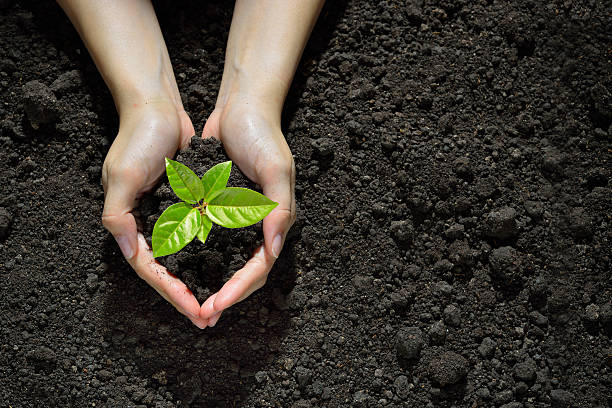

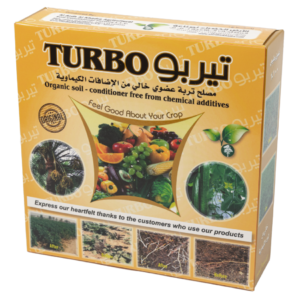
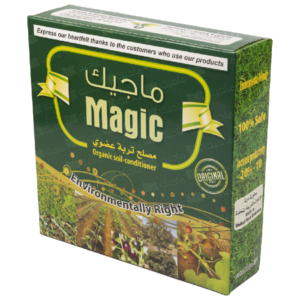

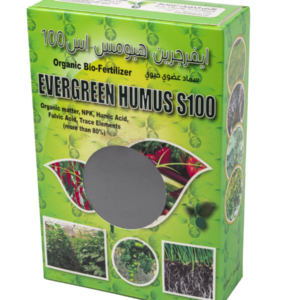
Leave a Reply